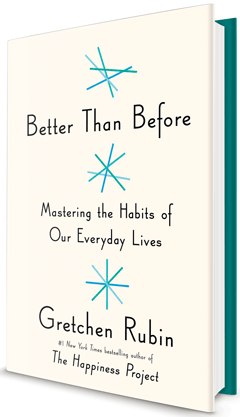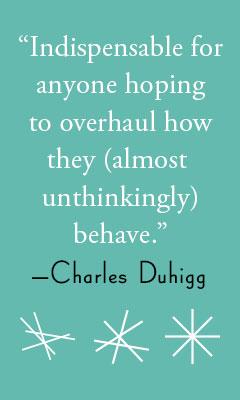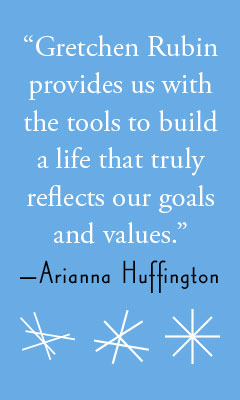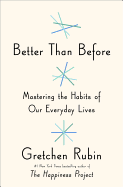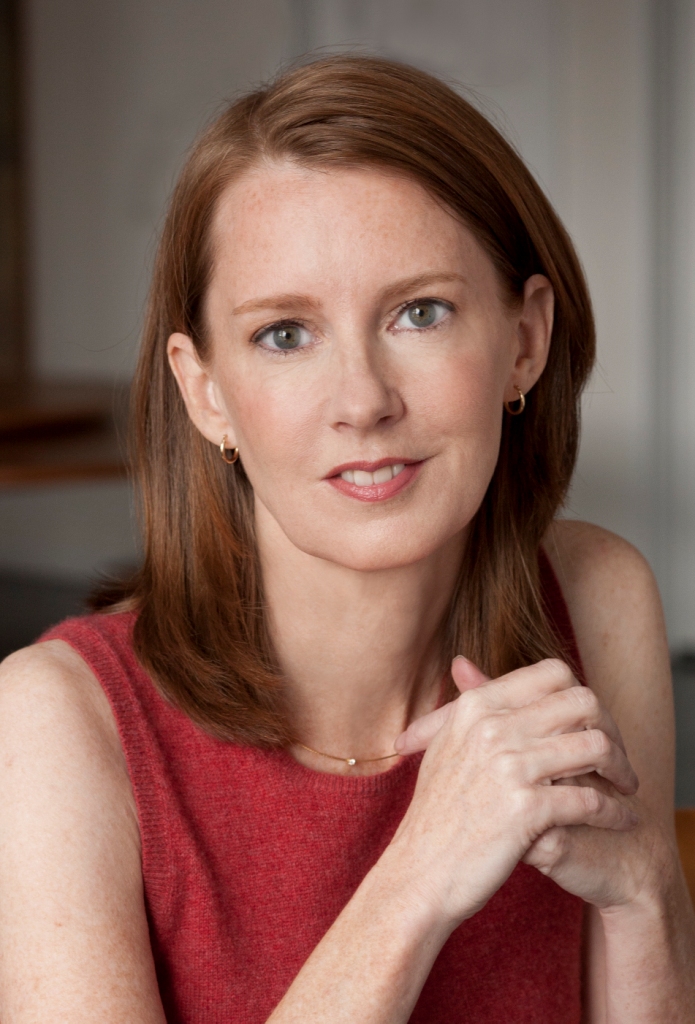Better than Before: Mastering the Habits of Our Everyday Lives
by Gretchen Rubin
"When we change our habits, we change our lives." We know our habits influence our health and happiness. If we habitually eat healthy foods, our risk of obesity decreases. On the other hand, if we can't seem to stop staying up past our bedtime, our mood and concentration during waking hours will suffer. The question Gretchen Rubin (Happier at Home) asked herself focused not on how habits affect our lives, but why we have so much trouble creating and maintaining positive habits when we're aware of the cost-benefit ratio of doing anything else. After reading the latest scientific research on the subject of habitual behaviors and enlisting the help of family and friends, Rubin embarked on a journey to discover why some people appear to make and keep habits effortlessly while others struggle, and how we can all find a strategy to achieve the right routine. "Habits make change possible by freeing us from decision making and from using self-control," she explains, because habits replace internal struggles with an autopilot mechanism. However, the real trick lies in consciously creating this mechanism.
According to Rubin, "The most important thing is to know ourselves, and to choose the strategies that work for us." In other words, she recognizes that wanting to form a healthy routine isn't enough; we must set ourselves up for success. She asks readers to take the first step of recognizing which of four personality types they fit in her "habits Sorting Hat": the "Upholder" who values expectations that come from within as well as from others, the "Obliger" who meets others' expectations but often fails to meet internal expectations, the "Questioner" who must see value in any expectations before meeting them, or the "Rebel" who struggles against any and all expectations. Understanding motivation is the key to strategizing. For example, a Questioner may easily take to regular exercise because she understands its intrinsic value, but an Obliger may have difficulty adjusting to good self-care habits without an accountability partner. Rubin also gives readers a secondary list of criteria for self-examination, quizzing them on everything from their most productive time of day to whether they prefer familiarity or novelty. The self-inventory may sound extensive, but it's no more challenging than taking an Internet quiz, and the results are far more valuable. "The goal is to develop habits that allow us to have time for everything we value--work, fun, exercise, friends, errands, study--in a way that's sustainable, forever."
As in her previous books, Rubin relies on anecdotes from her own life to illustrate her points, many of them involving the loved ones who tested her theories and strategies. Her diabetic sister, Elizabeth, features prominently as a strategy tester, and her successful attempts to give up French fries, monitor her blood sugar levels as closely as possible and exercise more inform Rubin's conclusions and offer amusement as Rubin gives her not-so-subtle encouragement--treadmill desk, anyone? While Rubin provides a complete list of notes to back up her quotations and statistics, as well as an exhaustive list of further readings, her stories of seeing her theories at work first-hand make the most compelling argument for trying out her advice. After all, one of Rubin's Secrets of Adulthood is, "I'm more like other people, and less like other people, than I suppose." Using a variety of real-life examples in conjunction with theoretical advice gives readers added opportunity to decide which situations and strategies best relate to their lives.
The real meat of Rubin's work lies in her careful analysis of the many strategies that can help habits form and the equally powerful pitfalls and loopholes that can break them. Some of her suggestions may strike readers as almost too easy, such as scheduling activities until--or even after--they become habitual. "How we schedule our days is how we spend our lives," Rubin reminds us. Other strategies, such as pairing activities we think of as undesirable with more fun pastimes, stimulate creative thought about how to make a chore less arduous. Possibly the most helpful information comes from Rubin's explorations of the traps set against habits by the outside world and by ourselves. For example, rewarding oneself for good behavior may seem logical on the surface, but Rubin cautions that "continuous progress is the opposite of a finish line" and a reward can make what should be an ongoing habit feel like a finished task.
In a world where we are constantly reminded of the good habits we should follow, yet simultaneously bombarded with temptations to do the opposite, Rubin's latest brainchild serves as a refreshingly sane touchstone. Smart, supportive and breezily honest about her own flaws, Rubin encourages us to get in touch with what we truly value, not impose challenging regimens in pursuit of unrealistic ideals. Best of all, the release date comes just in time to rescue those of us who have dropped our New Year's resolutions with a more relaxing and realistic look at how we shape our lives. --Jaclyn Fulwood



